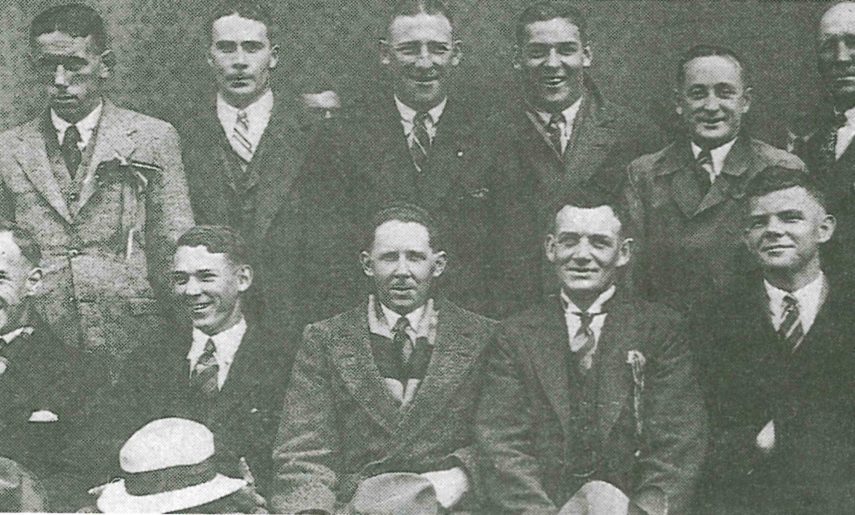
This week, in 1930, the inaugural Empire Games were held in the Canadian city of Hamilton.
It was important that the first edition were successful to ensure the future of the Games, but there were financial pressures with the world in the Great Depression. However the Games were a great success and the future of the Empire/Commonwealth Games was sealed.
To help with the extensive travel costs to Hamilton, the city donated $30,000. The funds were split between eight of the 10 visiting teams and Australia received $5000.
Australia selected nine athletes, comprising five track and field athletes, two swimmers and one boxer and a rower.
There were two staff, the team manager Hugh Weir and the coach and trainer Harvey Fargher. The team assembled in Sydney in late June where a farewell dinner was held, followed by a function at the State Theatre where they were presented with their team blazers. On the following day, 26 June 1930, the team departed for Canada on the steamship the Aorangi. They travelled to Auckland where the New Zealand team boarded the ship.
The Australian team coach, Harvey Fargher, trained the team regularly on board the ship. Training started at 7.00am and it was reported they worked out three-times daily during the travel which was a little over three weeks.The team arrived on July 18, a month ahead of the opening ceremony on August 16.
Four mates of the great Australian rower Bobby Pearce worked their way onto the ship and then ‘hitch hiked’ across Canada on holiday.
The men were housed in classrooms in the Prince of Wales School, which were converted into dormitories with two dozen men to a room.
Although conditions were not ideal, the athletes understood the importance of these first Games.
English 880 yards champion Tommy Hampson said the athletes were well looked after.
“We all appreciated that we were taking part in a pioneering venture and what we missed in creature comforts, Hamilton’s hospitality more than compensated for,” he said.
Nearly 400 athletes from 11 countries competed in the inaugural Games. The teams were Bermuda, British Guiana, Canada, England, Northern Ireland, Newfoundland, New Zealand, Scotland, South Africa and Wales.
The sports contested were athletics, bowls, boxing, diving, rowing, swimming and wrestling. Women competed in only the swimming events and Australia did not select any women.
On 16 August 1930, witnessed by a crowd of 20,000 spectators, the Games were officially opened by the Governor-General of Canada, Lord Willingdon. Canadian sprinter Percy Williams read the oath of allegiance on behalf of the athletes. The crowd sang ‘God Save the King,’ 21 cannons were fired and hundreds of pigeons were released.
A few hours after the opening ceremony, competition commenced in some of the sports.
In the pool, Noel Ryan won Australia’s first gold in Empire/Commonwealth Games history with victory in the 400 yards freestyle. Three days later he added the 1500 yards freestyle title, becoming one of the most successful competitors at the Games.
Australia’s sole entry in the rowing, world champion sculler Bobby Pearce, had no trouble winning the single scull. A carpenter by trade, Pearce never returned to Australia, instead staying on in Canada after being offered a job as a salesman at a whisky company.
In the boxing Dudley Gallagher competed in the four-person middleweight division. In his opening bout, he defeated South Africa’s Ernest Pierce. In his gold medal match he lost to Frederick Mallin in a decision, winning the silver medal.
In track and field, Alex Hillhouse was Australia’s most successful athlete winning a pair of silver medals in the two and three mile steeplechase events. The other medallists were William Whyte who won silver in the one mile and George Golding who won bronze in the 440 yards.
Australia finished sixth on the medal tally with three gold, four silver and one bronze.
The Games were considered a major success and at the 1932 Olympic Games, the British Empire Games Federation was formed ensuring the future of the event. It was the birth of an institution which celebrated sporting talent amongst nations of the Commonwealth in great spirit, and earned the tag the ‘Friendly Games’.
David Tarbotton for Commonwealth Games Australia
Image: the 11-person Australian team for the 1930 Empire Games.


